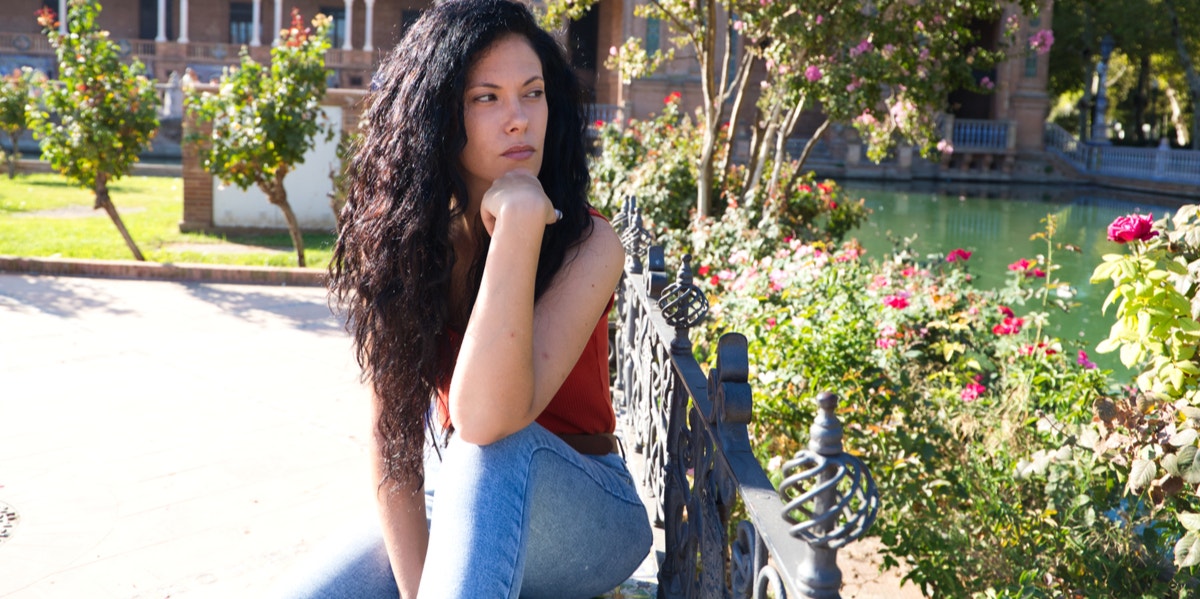Why I Can't Stand Being Called 'Exotic Looking'
Let beauty exist on its own terms, regardless of ethnicity.
 JOSE_ESCUDERO / shutterstock
JOSE_ESCUDERO / shutterstock By Samantha Walisundara
Please don’t call me exotic. It may seem like a compliment for you, but to me, it is anything but that.
Surrounded by girls who are blonde, blue-eyed, tall and fair skinned, I realize I stand out. Instead of blue eyes, my eyes are the color of espresso. My skin is tan and darkens as the sun kisses it in the summer.
My face is framed by dark, almost midnight-like curly locks, standing at 5’7" with a lean athletic build.
Men pass by and stare, and there are times where I wonder why they are staring. Is it because they find me captivating? Or is it because I don’t look like the other girls they pass by?
Each day I become more and more aware of my skin color as I walk on a campus predominantly made up of girls and guys of fair skin. And each day I find myself struggling with trying to be confident in whom I am, comfortable in the skin, which I exist in.
I’ve had many people tell me I am exotic. And although it may seem like a compliment, it makes me feel like a foreign fruit.
If you Google the word exotic, the definition that pops up is, “Originating in or characteristic of a distant foreign country.” The examples given consist of exotic birds, places, and food items. It’s a word used to describe things, not humans.
Calling a woman of color exotic is more or less a backhanded comment that we are less normal and human than others.
I’ve had my fair share of men who have tried to seduce me with the statement, “You’re so exotic.” And each time I hear those words, I feel myself cringe. As if I am simply a thing on their bucket list they’d like to cross off.
As if I am a fetish. Something they’d like to brag to their friends about. “Dude, I banged that exotic girl.”
Those words serve as a reminder that I do not meet the expectations of Western, white beauty standards. That I am something that once the West gets a taste of, can simply just throw away.
And those words are extremely damaging to the confidence and self-worth of women of color everywhere. They make us wonder whether people are attracted to us for who we are, or if all they want is a taste of the “exotic.”
I may look different, but I was born here. My roots may be from a different country, but that doesn’t make me foreign. Exoticizing me means that you are assuming dominance over me.
When I am labeled as exotic, the dominant Western culture of homogenous beauty standards is even more established as normal, simply reducing me to the feeling that I am anything but normal.
So instead of calling me exotic, tell me I’m beautiful. Because when you do refer to me as exotic, I feel devalued, invalidated almost.
When you call me exotic, you are simply excited by my brown skin, my dark hair, and my Sri Lankan features. You see the big brown doe eyes, but you don’t see me.
And I find myself in a constant battle between wondering if you have a fetish for women of color, or if I’m simply something you want to cross off your list.
I wonder if any brown girl would do, and that leaves me feeling less than. Because all I think you see is my features, not what’s inside of me.
When you call someone exotic, think again. Because it takes a great amount of energy to try and let it go, and be okay with being indirectly referred to as less than. Deep down I know that I am enough and truthfully I am exhausted from being othered.
I don’t want to be compared to the norm. I want to be my true authentic self without having to constantly compare myself to others. I want to be loved and liked for the qualities you can’t see on my skin or face.
I want to be admired for my heart, my positivity, and my passions. I want you to see past this exotic otherness and to see the beauty that lies beneath the exteriors.
To put in the effort to see that beauty has no standards and that beauty lies in being different. Not in being the same as everyone else.
Let beauty exist on its own terms, regardless of ethnicity. And if you would like to compliment me, tell me I’m beautiful. Not exotic.
Samantha Walisundara is a writer and contributor to Unwritten. Her work focuses on heartbreak, lifestyle, and family topics.
